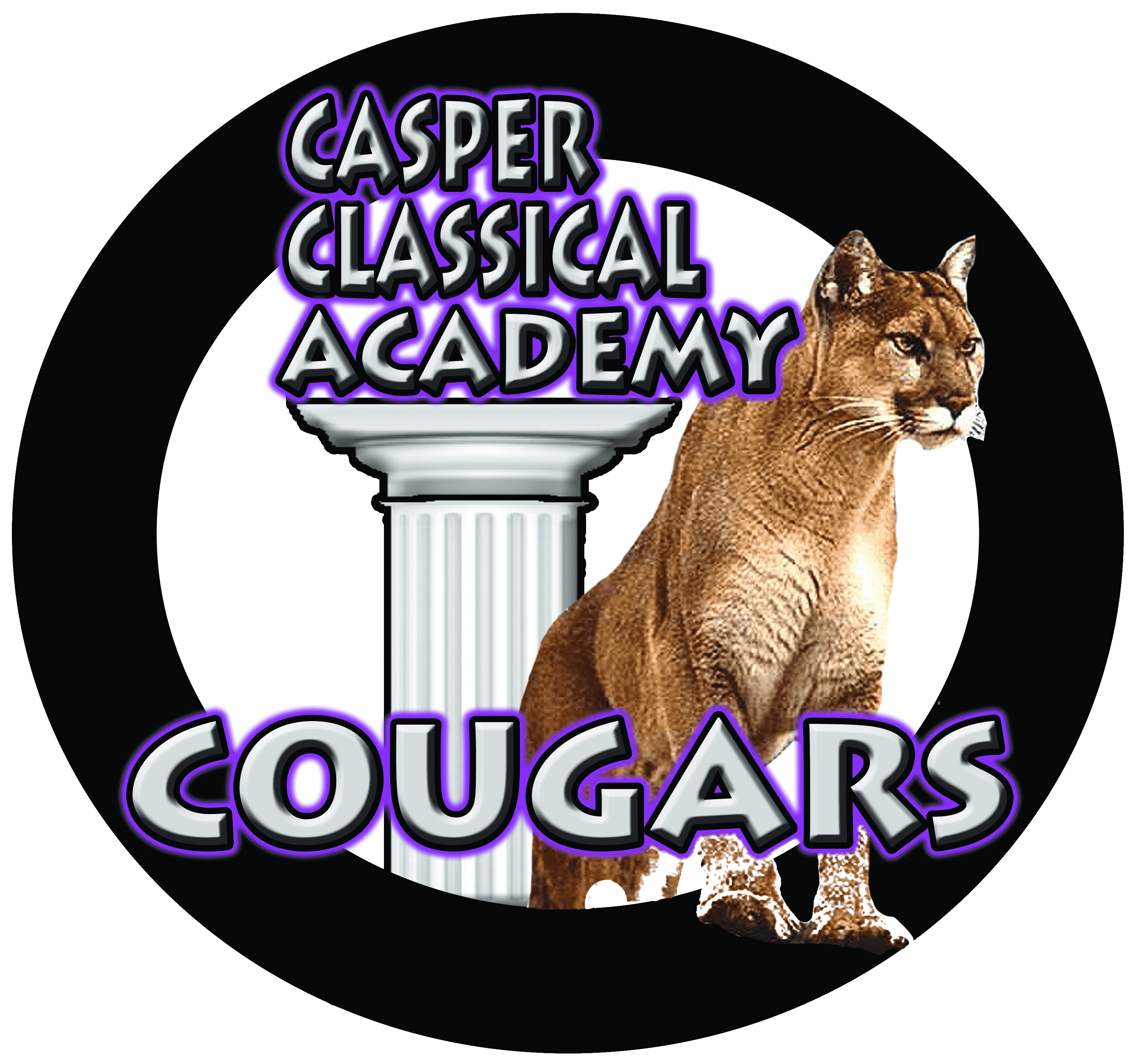Classical Education

Pillars of Classical Education
Heritage
Intellect
Individuality
Character
Truth

Curriculum
Casper Classical Academy follows a classical, college-preparatory curriculum approved by the Governing Council. While district and state standards are adhered to closely, the curriculum is enhanced with additional content that reinforces the classical theme. Every subject area sets high expectations for CCA students. We integrate character development, the Arts and Humanities into each of our core subjects. Our curriculum is rich in Classical and Award-winning Literature. We introduce Latin/Greek roots in grade 6, instruct our students in Latin in grade 7, and give them the option to continue in grade 8 if they so choose.
Math classes are challenging, with students typically working beyond the typical expectations.
Technology is an integral piece to our school’s curriculum as well. It can be integrated into all curriculum areas primarily through projects. Students combine technology and content area classes to produce products to meet standards within those content areas.
Students needing enrichment in language arts and math may be selected by WY-TOPP score and teacher recommendation to partake in an accelerated course. In addition to the basic course offerings, students can select from a number of Fine and Performing Arts elective courses.
The Trivium
Casper Classical Academy’s curriculum centers around the Trivium. The Trivium is a brain-based human development theory as well as a theory of knowledge. The Trivium can be defined as having three stages of human development and learning: grammar, logical-dialectic, and rhetorical.
The grammar stage involves learning the fundamental skills and knowledge that every student needs to know. This may involve memorization or facts and skills.
The logical-dialectic stage involves analyzing the basic facts and knowledge learned in the grammar stage. This stage has been implemented into every content area as well as in our 8th grade Logic class.
The last stage of the Trivium is the rhetorical, or communication stage. It involves synthesizing and evaluating the basic facts and knowledge learned in the grammar stage, and analyzed in the logical-dialectic stage. This stage has also been embedded into the curriculum of each content area.
Character Development
To develop responsible citizens and provide character education, the eight cornerstones we rely upon are:
- RESPECT FOR SELF AND OTHERS: Appreciating the unique qualities and inherent human dignity of others and oneself; accepting and affirming individual differences and cultural diversity, plus displaying courtesy and appreciation for others.
- COURAGE: Encouraging firmness of mind and will in the face of opposition, to stand by his or her convictions with value and determination.
- COMPASSION: Caring about others, displaying kindness and concern for others, empathizing with others, and helping others through actions.
- RESPONSIBILITY: Understanding and accepting the impact and consequence of personal actions and decisions; striving to fulfill personal obligations.
- HONESTY/INTEGRITY: Practicing truthfulness and sincerity in relationships and actions; shaping a clear set of ethics which direct thoughts and actions.
- COMMITMENT: Believing in one’s personal capacity to make a difference; investing the hard work needed to realize goals; seeking ways to consistently improve, and persisting through setbacks.
- VALUING FAMILIES: Respecting one’s own and others’ families; affirming the need for families; and supporting families in their needs.
- SENSE OF COMMUNITY: Accepting the rights, responsibilities, and privileges of belonging to the community.
